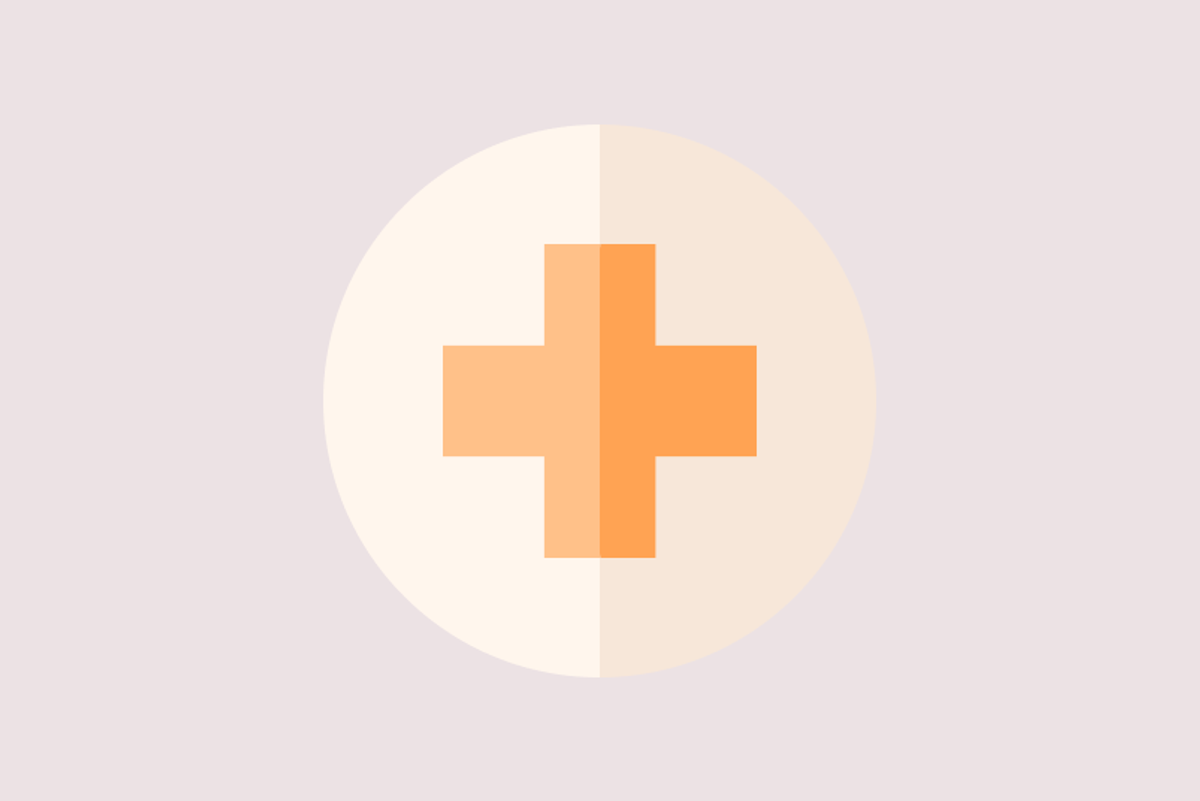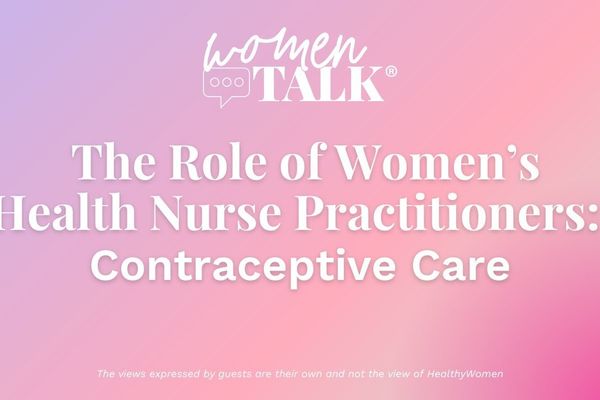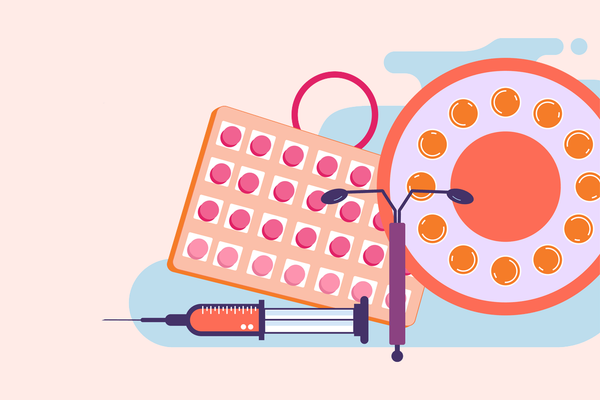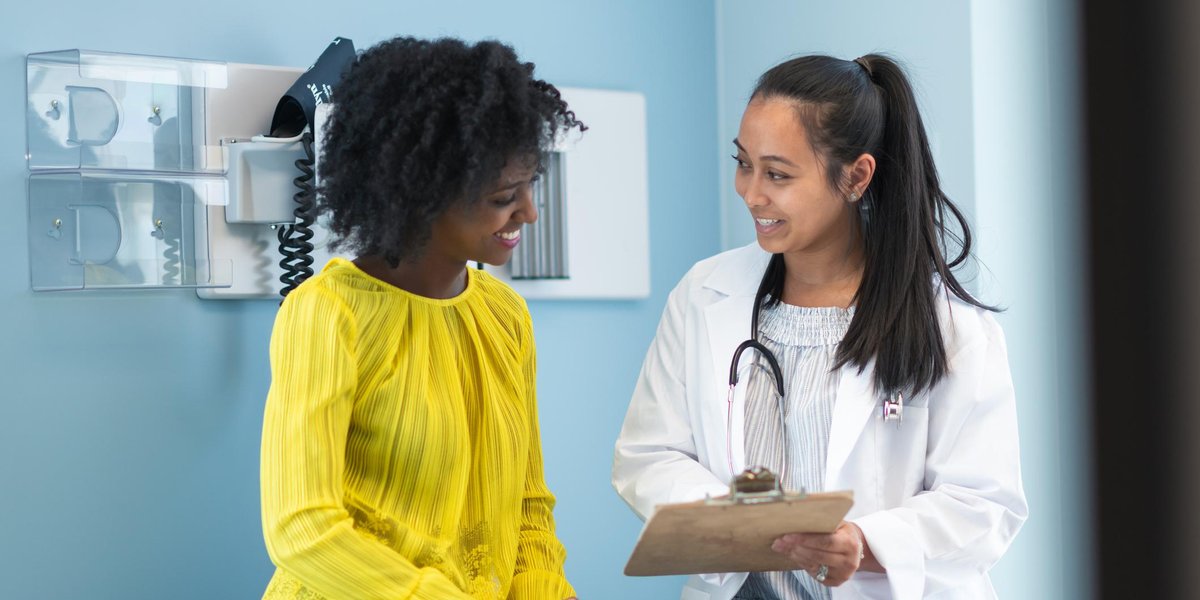
Search powered by AI
- Overview
- Types of Pills
- Benefits
- Risks
- Facts to Know
- Questions to Ask
- Key Q&A
- I'd like to use the pill for contraception, but I'm worried. Are they safe?
- I've heard that birth control pills "trick" the body into thinking it is pregnant. What does that mean?
- My health care professional gave me the mini-pill as I was leaving the hospital with my newborn and said to start right away. I thought I had to wait six weeks after giving birth?
- I've been using birth control pills for several years. Do I need to stop for a while and give my body a break?
- When do missed pills matter the most?
- How do emergency contraceptive pills work? Do they cause an abortion?
- I'm 48 and getting close to menopause. Can I still use the pill?
- Are chronic headaches a reason NOT to take birth control pills?
- A friend of mine got pregnant while using the pill, and she said it was because she was taking antibiotics. What's the deal?
- I've heard that it's possible to skip the placebo pills and start a new pill pack right away. Is that true?
- Organizations and Support
Medically Reviewed
Overview
What Is It?
Birth control pills are synthetic forms of the hormones progesterone and estrogen taken by women to prevent pregnancy. The birth control pill prevents ovulation by maintaining more consistent hormone levels. Without a peak in estrogen, the ovary doesn't get the signal to release an egg, which eliminates the possibility of fertilization and pregnancy.
Since the U.S. Food and Drug Administration (FDA) approved "the pill" in 1960, it has become the most popular and one of the most effective forms of reversible birth control ever invented. According to The Guttmacher Institute, among U.S. women who use birth control, more than 27 percent use the pill. A 2013 National Health Statistics Report says that 82 percent of women who use contraception have used the pill at some point.
Since the U.S. Food and Drug Administration (FDA) approved "the pill" in 1960, it has become the most popular and one of the most effective forms of reversible birth control ever invented. According to Planned Parenthood, among U.S. couples who use birth control, more than 30 percent use the pill.
In recent years, birth control pills have changed to include less hormones, resulting in fewer side effects. In fact, almost all healthy women who don't smoke may use birth control pills, regardless of their age. Unlike the original oral contraceptives, low-dose pills have few health risks for most women and even offer some health benefits, such as lighter periods (which reduce risk of anemia), less severe menstrual cramps and lessening of acne breakouts.
Birth control pills do carry some health risks. For example, if you are over 35 and smoke or have certain medical conditions such as a history of blood clots or breast or endometrial cancer, your health care professional may advise against taking oral contraceptives. Also, birth control pills do not protect you from sexually transmitted diseases (STDs), including HIV (human immunodeficiency virus), the virus that causes AIDS, or HPV, the human papillomavirus that can cause cervical cancer.
Unlike forms of birth control sold over the counter, you need a health care professional's prescription to purchase birth control pills, and many health insurers cover their cost. The one exception is the emergency birth control pill, Plan B One-Step, which is sold over the counter.
Understanding Your Menstrual Cycle
At the beginning of each menstrual cycle, levels of the hormone estrogen begin to rise. Estrogen helps thicken the bloody lining of the uterus (endometrium) to prepare for a fertilized egg. Once estrogen levels peak, about 14 days into the menstrual cycle, one of the ovaries releases one or more eggs—this release is called ovulation.
After ovulation, levels of another reproductive hormone—progesterone—rise to help prepare the uterus to receive a fertilized egg by thickening its lining. The egg travels through the fallopian tubes toward the uterus, and if the egg is fertilized and successfully implants itself in the uterine lining, conception (pregnancy) takes place. If conception does not occur, both estrogen and progesterone levels drop, signaling the now thickened uterine bloody lining to slough off or shed, and menstruation begins.
How Birth Control Pills Work
Birth control pills are a synthetic form of the hormones progesterone and estrogen. They prevent ovulation by maintaining more consistent hormone levels. Without a peak in estrogen, the ovary doesn't get the signal to release an egg. Remember that no egg means no possibility for fertilization and pregnancy.
The pill also thickens cervical mucus so the sperm cannot reach the egg. It makes the lining of the uterus unreceptive to the implantation of a fertilized egg.
How to Take Birth Control Pills
There are a few different ways you can start to take birth control pills. Discuss the pros and cons of the following methods with your doctor:
- You can start taking them on the first day of your period, in which case you won't need backup birth control.
- You can start taking them the Sunday after your period starts, in which case you will need backup birth control for seven days.
- You can start taking birth control pills on the day they are prescribed, in which case you will need to make sure you're not pregnant and you will need to use backup birth control for the first month. If you have a negative pregnancy test and it has been at least 10 to 11 days since you last had intercourse, you can be nearly sure you are not pregnant and it is OK to start the pill.
No matter when you start taking birth control pills, you will need to start each new pack on the same day of the week that you began your first pack. For example, if you start taking your birth control pills on a Monday, you will always begin taking them on a Monday. Keep in mind that birth control pills only work if you take them every day. They do not accumulate or collect in your body, which is why you must take a pill every day! You shouldn't skip pills (on purpose or by accident) or stop taking them, even if you're not having sex often. Also be aware that certain medications, such as certain antibiotics taken for a long time, can make your birth control pills less effective. If you regularly have diarrhea or vomiting, that can interfere with absorption of the pill. If you miss a pill or have gastrointestinal problems or are taking medication that could interfere with your birth control pills, use a backup method for the rest of your cycle. Just remember, don't stop your birth control pills.
Types of Birth Control Pills
The three most common types of birth control pills are combination pills and progesterone only pills (POP). Combination pills contain both estrogen and progestin. Each pill in the pack contains a combination of these two hormones. Progesterone Only Pills contain no estrogen. Called the progestin-only pill, or "mini-pill," it's ideal for breastfeeding women because estrogen reduces milk production. It's also ideal for women who cannot take estrogen. Both types are equally effective, and you should work with your doctor to determine the one that's right for you. There are also and emergency contraceptive pills, which are not intended to be used regularly as a contraceptive. They are designed to prevent pregnancy after unprotected sex (when standard contraceptives fail or no method was used).
Learn more: Types of Birth Control Pills
Health Benefits of Birth Control Pills
Birth control pills provide certain health benefits in addition to preventing pregnancy. Before you start taking oral contraceptives, discuss the health benefits with a health care professional. Some of the main health benefits of birth control pills include an improved menstrual cycle (less bleeding and cramps), decreased risk of certain types of cancers, protection from ovarian cysts and an improved complexion.
Learn more: Benefits of Birth Control Pills
Risks & Side Effects of Birth Control Pills
Despite the fact that they are safe for most women, BCPs do carry some health risks. For example, if you are over 35 and smoke or have certain medical conditions such as a history of blood clots or breast or endometrial cancer, your health care professional may advise against taking BCPs. Also, birth control pills do not protect you from sexually transmitted diseases (STDs), including HIV (human immunodeficiency virus), the virus that causes AIDS, or HPV, the human papillomavirus that can cause cervical cancer.
Unlike other forms of birth control sold over-the-counter, you need a health care professional's prescription to purchase BCPs, and many health insurers cover their cost. The one exception is the emergency birth control pill, Plan B One-Step, which is sold over the counter.
Learn more: Risks of Birth Control Pills
Types of Pills
The three most common types of birth control pills are:
1. Combination Pills. When you hear the term "birth control pill," it most often refers to oral contraceptives containing estrogen and progestin. Each pill in the pack contains a combination of these two hormones.
Combination birth control pills may be monophasic, where each of the active pills contains the same amount of estrogen and progestin and all the pills will be the same color, or multiphasic where the active pills contain varied amounts of hormones designed to be taken at specific times throughout the pill-taking schedule. The multiphasic pills will be different colors to indicate the hormonal dose changes.
There are a few different ways you can take combination pills—for 21 days, 28 days, 91 days or continuously.
- 28-day pills (21 active; 7 inactive): With 28-day pills, you take a pill at the same time each day for 28 days. Usually, the first 21 pills contain hormones, and the last seven pills are placebo pills. During the week when you take the last seven pills, you will get your period. Once you've finished all the pills in your pack, you'll start a new pack of 28 pills.
- 28-day pills (24 active; 4 inactive): And now tIncreasingly popular are thehree pill packs containing 24 days of hormone pills and four days of placebo pills, sometimes resulting in a shorter, lighter period. s The hormone pills may contain a combination of drospirenone, a progestin, and ethinyl estradiol (Yaz, Beyaz, Gianvi, Loryna, and Nikki) or a combination norethindrone, another progesterone, and ethinyl estradiol (a combination of drospirenone, a progestin, and ethinyl estradiol; Beyaz, which contains the same hormones as Yaz plus a daily dose of folic acid; and Loestrin 24 Fe, Generess Fe and Minastrin 24 Fe)a combination of ethinyl estradiol and norethindrone, another progesterone) contain 24 days of hormones and four days of placebo pills, usually resulting in a shorter period.
- 21-day pills: If your birth control pack contains 21 pills, you will take one pill at the same time each day for 21 days and then wait seven days to start a new pack. During these seven days, you will get your period. It may not start until you have taken two or three of the placebo sugar pills.
- 91-day pills: Also called extended-use pills, they are marketed under the brand names Seasonale, Seasonique, LoSeasonique, Jolessa and Quasense. This dose regimen calls for taking a pill at the same time every day for 91 days. The first 84 pills contain hormones, and the last seven are placebo (sugar) pills or a very low dose of estrogen to help control some period symptoms. You get your period when you take the sugar pills, so you if you opt for extended-use pills, you only get your period four times a year. But you may have some light bleeding or spotting of blood as your body adjusts to the extended-use pills.
- Continuous birth control pills: The FDA has approved continuous-use birth control pills that contain ethinyl estradiol and levonorgestrel. Brand names include Lybrel, Alesse, Lessina, Nordette, Triphasil-28, Triphasil-21, and others. It is a monophasic pill (containing the same levels of estrogen and progestin throughout the entire pill-taking schedule) that comes in a 28- or 21-day pack and is designed to be taken continuously, with no break between pill packets. That means you won't have a period. You may have some spotting or breakthrough bleeding, particularly when you first start using continuous birth control pills. But most women will have no bleeding (or hardly any) by the end of a year.
In order to skip their periods (in other words, to create continuous birth control pills on their own), some women take their 21-day pills continuously or refrain from taking the sugar pills in the 28-day pack so they are only ever taking pills that contain hormones. This may work best for women using monophasic pills. If you're considering this option, discuss it first with your health care provider. Additionally, be aware that insurance may not cover pills used in this way.
Advantages of combination pills:
- reduce risk of ovarian cancer and endometrial cancer
- prevent ectopic pregnancy (pregnancies that occur outside the uterus, usually in the fallopian tube)
- decrease menstrual blood loss, pain and cramps
- make premenstrual symptoms less severe
- help regulate menstrual cycles
- improve acne
- prevent bone density loss in women who have attained their peak bone mass (generally women over 30)
- decrease risk of ovarian cysts
- improve excessive body hair, particularly on the face, a condition called hirsutism
- improve endometriosis
- decrease benign breast disease or breast cysts
- effects are reversible with quick return to fertility
- treat the emotional and physical symptoms of premenstrual dysphoric disorder (PMDD), a severe form of PMS. Only two combination OCs—Yaz and Beyaz—have been shown to be clinically effective for this use. Both contain the progestin drospirenone and ethinyl estradiol, a form of estrogen, and Beyaz contains an added daily dose of folic acid.
Disadvantages:
- could cause nausea, vomiting, headaches and/or spotting, particularly with the first few cycles
- may lead to high blood pressure/hypertension (very small increased risk)
- may cause blood clots in a small percentage of users
- may cause a slight increase in stroke risk
- may contribute to the formation of gallstones and rare benign liver tumors
Possible side effects:
- nausea and vomiting
- headaches
- irregular bleeding
- weight gain or weight loss, if you change your eating habits after you start taking the pill
- breast tenderness
- increased breast size
Ask yourself the following questions to determine if combined birth control pills are a good option for you:
- Are you the type of person who can remember to take a pill every day?
- If you are at risk for sexually transmitted infections, will you use condoms?
- Do you need relief from endometriosis, severe menstrual pain or anemia?
- Do you suffer from PMDD?
- If you smoke, are you under 35?
- If breastfeeding, is your baby six months or older?
- Do you have high blood pressure?
- Have you done well with combination pills in the past?
2. Progestin-Only Pills (POP). This type of pill contains no estrogen. Called the progestin-only pill, or "mini-pill," it's ideal for breastfeeding women because estrogen reduces milk production. It's also ideal for women who cannot take estrogen. Progestin-only pills primarily work by preventing ovulation, thinning the endometrium and thickening the cervical mucus, thereby preventing sperm from entering the uterus. However, with progestin-only birth control pills, ovulation isn't consistently suppressed, so the actions on cervical mucus and the endometrium are the critical factors. To work effectively, they must be taken at a certain time every 24 hours.
Advantage of POPs:
- decreased menstrual blood loss
- decreased menstrual cramps and pain
- can be used by breastfeeding women immediately after delivery
- an option for women who cannot use estrogen, such as those who are over 35 and still smoke
- easily reversible
Disadvantages:
- irregular bleeding patterns, spotting or breakthrough bleeding
- must be taken at the same time every day
- do not protect against sexually transmitted infections; women at risk must use condoms
- increased risk of follicular cysts on the ovaries
- may be slightly less effective than combination oral contraceptives
Possible side effects:
- amenorrhea (absence of a monthly period)
- irregular bleeding
- tender breasts
- nausea
- headaches
Ask yourself the following questions to determine if POPs are the right choice for you:
- Are you the type of person who can remember to take a pill at exactly the same time every day?
- Will irregular bleeding or spotting bother you or interfere with intimacy?
- Are you breastfeeding, but feel that you need contraception?
- If you are at risk for sexually transmitted infections, will you use condoms for protection?
- Do you need to avoid taking estrogen?
3. Emergency Contraceptive Pills (ECP). ECPs are not intended to be used regularly as a contraceptive. They are designed to prevent pregnancy after unprotected sex (when standard contraceptives fail or no method was used). There are three FDA-approved emergency contraception pills in the United States: Plan B One-Step and Next Choice, all of which contain the progestin levonorgestrel, and ulipristal acetate tablets, sold under the brand name "ella."
ella can prevent pregnancy when taken orally within five days (120 hours) after unprotected sex. It is a progesterone agonist/antagonist whose likely main effect is to inhibit or delay ovulation. ella cuts the chances of becoming pregnant by about two-thirds for at least 120 hours after unprotected sex, studies have shown.
Plan B One-Step should be taken within 72 hours of unprotected sex. Recent research shows that the levonorgestrel pills may be effective up to 120 hours after unprotected sex but are more effective the sooner they are taken. Next Choice works similarly to Plan B One-Step, but consists of a two-dose regimen, with the first dose taken within 72 hours of unprotected sex and the second 12 hours later. Newer studies indicate that both pills may be taken together as soon as possible after unprotected sex.
You can buy the levonorgestrel emergency contraceptive pills over the counter without a prescription. You must ask for them at the pharmacy counter. ella is available only by prescription, but women could keep a supply at home.
For information on emergency contraception, visit www.not-2-late.com or call 1-888-NOT-2-LATE or 1-800-230-PLAN to locate a health care professional who can help you. The website and hotlines also provide information on which pharmacies sell emergency contraceptives because not all pharmacies carry them.
In addition, certain regular oral contraceptive pill packs can be used for emergency contraception if you take several pills at the same time (the exact quantity depends on the brand), but make sure you check with your health care professional for proper dosage and timing.
To learn more about how ECPs work and how to get them, ask your health care professional or pharmacist. Or visit the Internet site for emergency contraception operated by the Association of Reproductive Health Professionals and the Office of Population Research at Princeton University (ec.princeton.edu).
Advantages of ECP:
- reduces the chance of unintended pregnancy
- can be obtained easily—Plan B One-Step is available over the counter
- can be obtained in advance and kept handy in case of an emergency such as condom breakage, missed oral contraceptives, late contraceptive injections or forced sex
Disadvantages:
- timing, because you must take ella within 120 hours of having unprotected sex or Plan B One-Step or Next Choice within 72 hours of having unprotected sex. The sooner you take emergency contraception after unprotected intercourse, the more effective it is. That's why it's a good idea to have a supply of emergency contraceptive pills available should the need arise.
Possible side effects:
- nausea and vomiting
- dizziness and fatigue
- headache
- an earlier next period, or, in rare instances, a later next period
- breast tenderness
- abdominal pain during menstruation
Ask yourself the following questions to determine if you should have ECPs on hand or know where to find them:
- Have you ever made love unexpectedly, without protection?
- Have you ever been forced to have sex?
- Has a partner had a condom break, slip or come off?
- Have you ever forgotten to take several birth control pills?
- Has a partner ever told you it was OK to have unprotected sex because he would pull out before ejaculation? (Pregnancy is still possible without ejaculation.)
- Has your diaphragm slipped?
- Have you been late for your birth control shot (Depo-Provera) and had unprotected sex?
Benefits
Birth control pills provide certain health benefits in addition to preventing pregnancy. Before you start taking oral contraceptives, discuss the health benefits and risks with a health care professional. Like any other medication, birth control pills can cause side effects; they may interact with other medications you may take; or they may not be a good choice for you because of your personal health history. Some of the main health benefits and risks associated with birth control pills are listed below:
- Prevent pregnancy. First and foremost, birth control pills are one of the most effective forms of reversible birth control. If used correctly, the odds are that only one in 1,000 women is likely to get pregnant in the first year of use. However, the actual failure rate is eight in 100 due primarily to missed pills or failure to resume pills after the seven-day pill-free period.
- Improve your menstrual cycle. Birth control pills can improve your menstrual cycle in at least four ways, including:
- less bleeding during periods; one product is designed to eliminate your periods entirely
- more regular and consistent menstrual cycle patterns
- relief from pelvic pain during menstruation
- relief from primarily mood-related symptoms of premenstrual dysphoric disorder (PMDD), a condition that causes many of the same symptoms as PMS, but with more intensity. Two combination oral contraceptives, called Yaz and Beyaz, have been approved by the FDA for use as oral contraceptives and as treatments for the emotional and physical symptoms of PMDD. Both contain drospirenone, a progestin and ethinyl estradiol, a form of estrogen, and Beyaz contains an added daily dose of folic acid
- Prevent cancer. Birth control pills have been shown to protect women from ovarian and uterine cancer, and possibly from colorectal cancer.
- Protect you from ovarian cysts. If you take birth control pills, you may have a lower risk for developing ovarian cysts than women using nonhormonal methods of contraception, such as diaphragms or condoms. Women using low-dose pills (20 mcg of estrogen) or multiphasic pills may not get the same benefit.
- Improve acne.
Risks
- Heart attack and stroke. A June 2012 study published in the New England Journal of Medicine found the risk of suffering a heart attack or stroke is very low in women who take low-dose oral contraceptives, but that risk rises with age and with pills containing higher estrogen doses. The researchers involved in the study also stated that new-generation lower-dose estrogen birth control pills are far safer than earlier versions of the pill. However, the researchers said women age 35 or older who have risk factors for heart attack and stroke, such as obesity or high blood pressure, might want to consider a form of birth control other than the pill.
- Migraines and stroke.Women who take oral contraceptives and have a history of migraines have an increased risk of stroke compared to nonusers with a history of migraine. Your risk is greatest if you have migraines with "aura"—neurologic symptoms related to vision, such as blurred vision, temporary loss of vision or seeing flashing lights or zigzag lines. As a result, the World Health Organization (WHO) has concluded that women with migraines with aura should not take birth control pills. For women over age 35 who get migraines without aura, the risks of oral contraceptive use usually outweigh the benefits. For women under 35, the American Congress of Obstetricians and Gynecologists and the World Health Organization state that combined birth control pills may be considered for women with migraines only if they do not experience aura, do not smoke and are otherwise healthy.
- Venous thromboembolism (VTE). This rare condition causes clots to form in your blood vessels and can cause symptoms including pain, swelling and varicose veins, and may block the flow of blood. The risk may vary with the type of progestin used in the pill. Smoking and obesity may also increase this risk.
- Worsen severe diabetes. The estrogen in birth control pills may increase glucose levels and decrease the body's insulin response, while the progestin in the pills may encourage overproduction of insulin. Use of birth control pills by diabetic women should be limited to those who do not smoke, are younger than 35 and are otherwise healthy with no evidence of persistent high blood pressure, kidney disease, vision problems or other vascular disease.
- Possible acceleration of gallbladder disease. Estrogen may cause bile to become oversaturated with cholesterol, which can lead to gallstones.
- No decreased risk of sexually transmitted diseases. Birth control pills do not protect against sexually transmitted diseases (STDs). But women who use birth control pills are less likely to develop symptomatic pelvic inflammatory disease (PID), which is an infection of the uterus, fallopian tubes or other reproductive organs. PID is a complication of STDs, especially chlamydia or gonorrhea, and may make you infertile or cause chronic pain. If you are at risk for contracting an STD, you should also use condoms.
Possible drug interactions
Some drugs can reduce the effectiveness of oral contraceptives. Likewise, oral contraceptives can interfere with the effects of some drugs.
These include:
- Seizure medications: phenytoin, carbamazepine, primidone, phenobarbital, topiramate, oxcarbazepine, barbiturates
- Tuberculosis medication rifampin
- Antifungal drug griseofulvin
- Bronchodilators such as theophylline
- St. John's wort
If you take any medication either on a short- or long-term basis, be sure to ask your health care professional or pharmacist about possible interactions with birth control pills and how you should avoid or manage them.
For example, you may need to use an additional contraceptive (such as condoms) as a backup contraceptive method or take a higher or lower-dose pill formulation.
Facts to Know
- Birth control pills are extremely effective at preventing pregnancy if used correctly and consistently. For example, only one in 1,000 women who use the pill as prescribed is likely to get pregnant in the first year of use.
- The pill works mainly by preventing ovulation or by thickening the mucus surrounding the cervix, which helps block sperm and thins the lining of the uterus so if an egg is fertilized, it would have trouble implanting.
- The pill is one of the most common forms of birth control. Among U.S. couples who use birth control, more than 27 percent currently use birth control pills.
- The most serious side effect of the pill continues to be an increased risk of cardiovascular disease. This risk is particularly high in certain groups, like women who smoke and are over 35.
- You may not know it, but the pill can help your health. For example, birth control pills can improve menstrual problems like heavy bleeding, pelvic cramps and pain, premenstrual syndrome and irregular cycles. They can prevent loss of bone density and reduce the risk of ovarian cysts. Pill use can also protect you from uterine and ovarian cancer.
- Newer low-estrogen birth control pills do not carry the risk of increased breast cancer that higher-dose estrogen pills did. An August 2014 study published in Cancer Research that looked at breast cancer risk and birth control pill use in women ages 20 to 49 found breast cancer risk was higher in women who had previously taken high-dose estrogen birth control pills, but not in women who had taken low-dose estrogen pills.
Questions to Ask
Review the following Questions to Ask about birth control pills so you're prepared to discuss this important health issue with your health care professional:
- Am I a good candidate for birth control pills?
- Which birth control pill would you prescribe for me? What about generic pills?
- When should I start taking the pills?
- What side effects have other women experienced when they take this pill?
- When is a side effect serious enough for me to call your office and schedule a visit?
- Do I still need to ask my partner to use condoms?
- What should I do if I forget to take a pill? What if I forget to take two in a row?
- If I have to take antibiotics, will I need to use a backup method of birth control?
- Can I use these particular pills for emergency contraception? If so, how many should I take and when?
- How soon after I stop taking the pill can I get pregnant?
- I'm close to menopause. Do you recommend very-low-dose birth control pills for me? Why or why not?
- I've had problems with regular pills making me nauseous. Do you think the mini-pill would be better? Why or why not?
- Can you tell me more about the birth control pill that was recently approved to help treat severe PMS? The emotional symptoms I have just before my period are overwhelming.
Key Q&A
I'd like to use the pill for contraception, but I'm worried. Are they safe?
Birth control pills can be used safely by most women and can even provide health benefits other than pregnancy prevention. The most serious side effect of the pill continues to be an increased risk of cardiovascular disease in certain groups, such as women over 35 who smoke.
I've heard that birth control pills "trick" the body into thinking it is pregnant. What does that mean?
The most widely used birth control pill is composed of estrogen and progestin, the two key hormones of pregnancy. A pregnant woman's placenta produces high amounts of both these chemical messengers, sending the body a signal to stop ovulating. After all, if the woman is already pregnant, why is there a need for another egg? This same signal is sent when a woman takes birth control pills because the levels of estrogen and progestin are constant—remember, it is the peak in estrogen that causes ovulation. When a woman is through with her three weeks of active pills, the hormones drop as they would naturally and she begins her period.My health care professional gave me the mini-pill as I was leaving the hospital with my newborn and said to start right away. I thought I had to wait six weeks after giving birth?
Confusion over this is understandable, because health care professionals don't all agree about when breastfeeding women should start taking progestin-only pills (POP), or the "mini-pill." According to the American Congress of Obstetricians and Gynecologists (ACOG), you can start using progestin-only birth control pills immediately after childbirth. If you choose a birth control pill that contains estrogen, you should wait until you've established breastfeeding for at least one month. Keep in mind a lactating woman whose baby's sole nutrition is from breast milk won't ovulate in those first six weeks. Many women discontinue full breastfeeding within the first six weeks, which means they can ovulate before six weeks postpartum. Because many women don't return to their health care professional at this time, they wouldn't be able to get a prescription for birth control when they need it.
I've been using birth control pills for several years. Do I need to stop for a while and give my body a break?
Because the hormones in pills don't build up in the body, there's no need to take a break from using them. There are also some health benefits that would end if you discontinue taking the pills.
When do missed pills matter the most?
The pills you have to worry most about missing are the ones right before and right after those seven placebo pills in your pack. Known as the pill-free interval, the placebos are designed to be taken the week you have your period to help you stay in the rhythm of taking a pill every day. If you start a new pack late or take longer than seven days "pill free," you might ovulate and could become pregnant. Read the package insert that came with your pills; it will explain what to do about missed pills, or call your health care professional. In the meantime, use backup contraception just to be safe. In general, if you miss a pill, take it as soon as you remember and then continue taking one pill each day as prescribed (depending on when you missed your pill, you may take two pills on the same day). If you miss two or more pills in the first week of your pill cycle and you have unprotected intercourse during this week, consider using emergency contraception.How do emergency contraceptive pills work? Do they cause an abortion?
Scientists have identified several ways that emergency contraceptive pills likely prevent pregnancy. How they work in your case will depend on where you are in your monthly cycle and the emergency contraceptive you choose. They may prevent or delay ovulation just as regular birth control pills would if they are taken early in a woman's cycle. If ovulation has already occurred, they may interfere with fertilization of an egg or the implantation of a fertilized egg in the uterus. ECPs won't work if implantation has already taken place, which is why it's important to take them within 72 hours of unprotected sex, if possible. That is also the reason ECPs are not considered an abortion; they have no effect on a pregnancy already established.
I'm 48 and getting close to menopause. Can I still use the pill?
Unless you smoke or have risk factors for heart disease, such as obesity or high blood pressure, yes. If you don't have any of these risk factors, low-dose birth control pills (those with 20 mcg of estrogen) are a good option for the years just prior to menopause—called the menopause transition or "perimenopause. Irregular or heavy periods can be common during perimenopause, and pills can help regulate them. Low-dose birth control pills also may prevent bone loss, potentially providing protection from bone disease.
Are chronic headaches a reason NOT to take birth control pills?
Not necessarily. Migraine headaches are the type of headaches that cause health care professionals the most concern when it comes to using birth control pills, and even then only if the patient has migraine with "aura"—a type of migraine that causes visual disturbances. Some women find their migraines improve once they start on birth control pills, especially if those migraines precede their menses. But keep in mind that pills users with a history of migraine headache have an increased risk of stroke compared to nonusers with a history of migraine. Your risk is greatest if you have migraines with "aura"—neurologic symptoms related to vision, such as blurred vision, temporary loss of vision or seeing flashing lights or zigzag lines. As a result, the World Health Organization (WHO) has concluded that women with migraines with aura should not take birth control pills. For women over age 35 who get migraines without aura, the risks of oral contraceptive use usually outweigh the benefits. For women under 35, the American Congress of Obstetricians and Gynecologists and the World Health Organization state that combined birth control pills may be considered for women with migraines only if they do not experience aura, do not smoke and are otherwise healthy.
A friend of mine got pregnant while using the pill, and she said it was because she was taking antibiotics. What's the deal?
Often, the blame for contraceptive failure is placed on a short stint of antibiotic use. Anecdotal reports abound regarding the reduction in pill effectiveness caused by antibiotics such as ampicillin and tetracycline, and some studies find lower levels of estradiol (a form of estrogen) in the blood of women taking these antibiotics, but no studies have been able to prove these claims. Studies are clear, however, regarding drug interactions between birth control pills and some other medications, such as anti-seizure medications and drugs used to treat tuberculosis. Ask your health care professional or pharmacist about possible drug interactions that may alter the effectiveness of either your birth control pills or another medication you are taking or are prescribed.I've heard that it's possible to skip the placebo pills and start a new pill pack right away. Is that true?
Yes, there are several reasons to consider skipping the pill-free interval. You could actually skip the placebos and take only the hormone pills for these reasons:
- unacceptably heavy or painful periods
- severe premenstrual side effects including depression
- endometriosis
- convenience (for example, if you want to avoid having a period during vacation)
Organizations and Support
For information and support on Birth Control Pills, please see the recommended organizations, books and Spanish-language resources listed below.
American College of Obstetricians and Gynecologists (ACOG)
Website: https://www.acog.org
Address: 409 12th Street, SW
P.O. Box 96920
Washington, DC 20090
Phone: 202-638-5577
Email: resources@acog.org
American Society for Reproductive Medicine (ASRM)
Website: https://www.asrm.org
Address: 1209 Montgomery Highway
Birmingham, AL 35216
Phone: 205-978-5000
Email: asrm@asrm.org
Bedsider.org
(support network operated by The National Campaign to Prevent Teen and Unplanned Pregnancy)
Website: https://www.bedsider.org
Address: 1776 Massachusetts Avenue, NW, Suite 200
Washington, DC 20036
Phone: 202-478-8500
Email: info@Bedsider.org
Guttmacher Institute
Website: https://www.guttmacher.org
Address: 1301 Connecticut Avenue NW, Suite 700
Washington, DC 20036
Hotline: 1-877-823-0262
Phone: 202-296-4012
Email: info@guttmacher.org
National Women's Health Network (NWHN)
Website: https://www.nwhn.org
Address: 1413 K Street, NW, 4th floor
Washington, DC 20005
Hotline: 202-682-2646
Phone: 202-682-2640
Email: nwhn@nwhn.org
Planned Parenthood Federation of America
Website: https://www.plannedparenthood.org
Address: 434 West 33rd Street
New York, NY 10001
Hotline: 1-800-230-PLAN (1-800-230-7526)
Phone: 212-541-7800
Sexuality Information and Education Council of the United States (SIECUS)
Website: https://www.siecus.org
Address: 90 John Street, Suite 704
New York, NY 10038
Phone: 212-819-9770
Books
A Gynecologist's Second Opinion: The Questions & Answers You Need to Take Charge of Your Health
by William H. Parker, Rachel L. Parker
The Yale Guide to Women's Reproductive Health: From Menarche to Menopause
by Mary Jane Minkin, Carol V. Wright
Spanish-language resources
Planned Parenthood: The Pill
Website: https://www.plannedparenthood.org/sp/anticonceptivos-y-embarazo/anticonceptivos/la-pildora.htm
Address: Planned Parenthood Federation of America, Inc.
434 West 33rd Street
New York, NY 10001
Phone: 212-541-7800
Women's Health
Website: https://espanol.womenshealth.gov/a-z-topics/birth-control-methods
Address: The National Women's Health Information Center
US Department of Health & Human Services
Hotline: 1-800-994-9662
HealthyWomen content is for informational purposes only. Please consult your healthcare provider for medical advice, diagnosis or treatment.
Related Articles
Hormonal vs. Non-Hormonal Contraception: What’s the Difference?
Understanding the different types of birth control can help you choose the best one for you
23 Sep 2021
Created With SupportFast Facts: What You Need to Know About Birth Control
Learn about hormonal and non-hormonal birth control options
22 Sep 2021
Created With SupportClinically Speaking: Questions to Ask Your HCP About Birth Control Methods
Here are some questions you can ask to help determine which type of contraception is right for you
22 Sep 2021
Created With Support









